By Sharon Muza, BS, CD/BDT(DONA), LCCE, CLE
March 22nd-28th is World Doula Week, originally designated in 2011 as “Doula Day” by Ruti Karni Horowitz. Since then, the celebration has expanded to a full week and is recognized by doula organizations all around the world.
As you recognize World Doula Week, now is the time to make plans for an entire month of celebrating doulas! May is International Doula Month Established in 1998 to promote the value of doula support, International Doula Month was selected to coincide with Mother’s Day. Follow the blog and join us again in May for a month of honoring the doula.
DONA International joins other perinatal organizations in recognizing our doulas and all the doulas and the work they do on a global level to support families and help create satisfying birth and postpartum experiences. We are proud that DONA International doulas are found in 56 countries around the world and today we invite you to meet some of the DONA International doulas doing working in several countries across the globe.
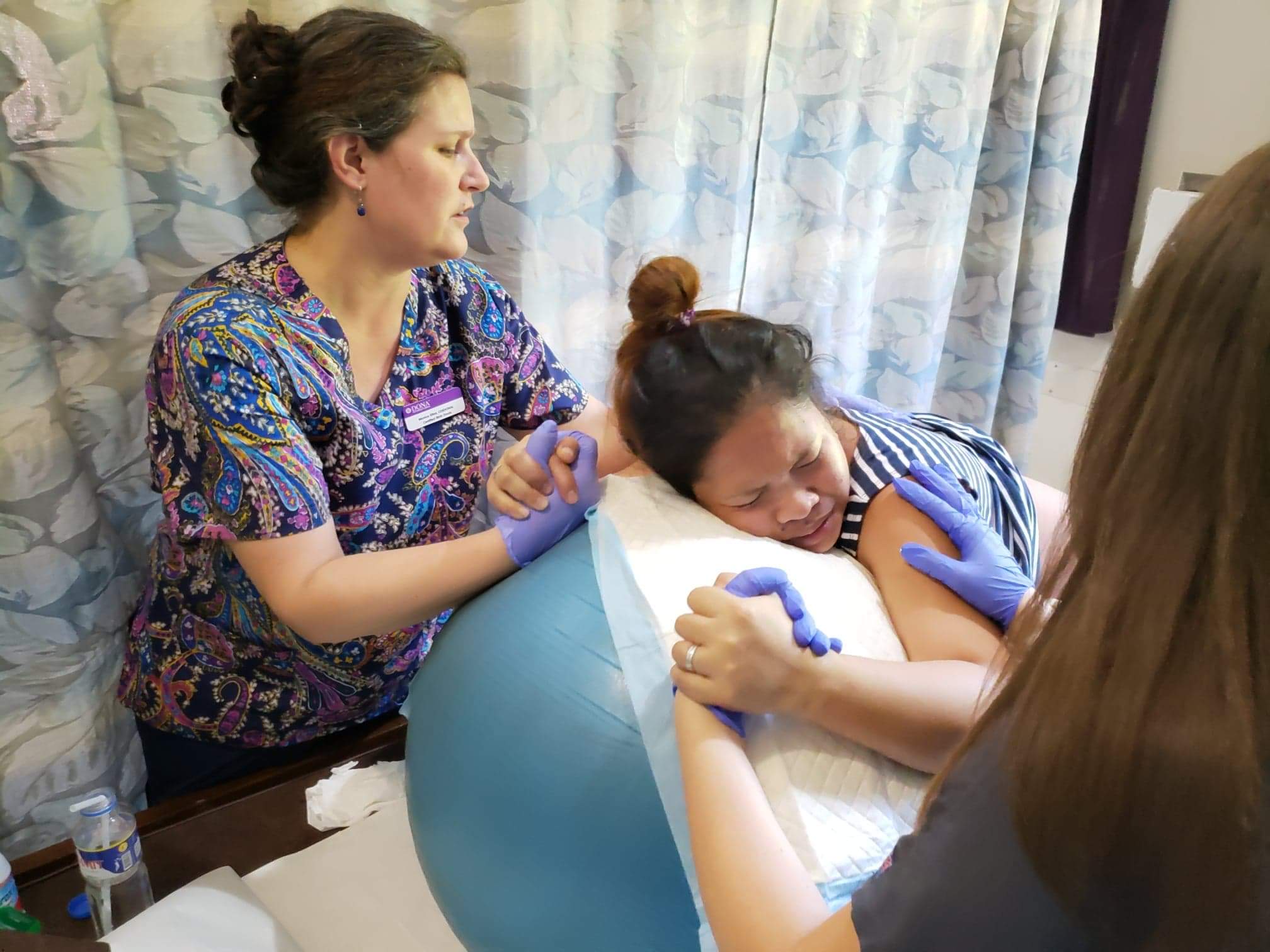 Monica Elliott, CD(DONA), BAs, CLE
Monica Elliott, CD(DONA), BAs, CLE
Manila, Philippines
- What are some challenges about being a doula in your location?
I am working in the outskirts of Manila, Philippines. I am a student of language and culture, often encountering resistance to new methods and skills as a doula. A doula is unknown here to most of the population. We travel to squatter/poor communities to do prenatal teaching and postnatal breastfeeding/ health checks. These communities do not always have access to health care for many reasons. Life is more fragile and much compassion is needed. It is my passion to train Filipina women to become doulas and bring compassion and knowledge to their communities.
- What are some of the things that bring you joy about being a doula?
The joy in the parents’ eyes as they are handed their child for the first time overwhelms my soul. Family here is so very important, family is everything. Helping women through birth here brings you closer to the family unit and closer to their culture
- Is there an interesting or unique birth custom in your area that may not be found in other locations?
It has become illegal to birth a child in one’s home here in the Philippines. A hospital or birthing home (Bahay Paanakan) are now the options for giving birth. This has taken away many of the traditional practices the Filipinas have known for generations. Still, some remain. A birthing mother is to lie flat and conserve energy for the birth. She is not allowed to care for herself, family attends her needs. She labors silently and often alone. The placenta is buried in her yard at home after arrival of mother and baby. This signals the end of the mother’s labor and danger. Some regions of the Philippines, it is believed that putting squash leaves on the abdomen of a laboring woman can facilitate labor. Some women believe that drinking coconut water can facilitate a fast labor.
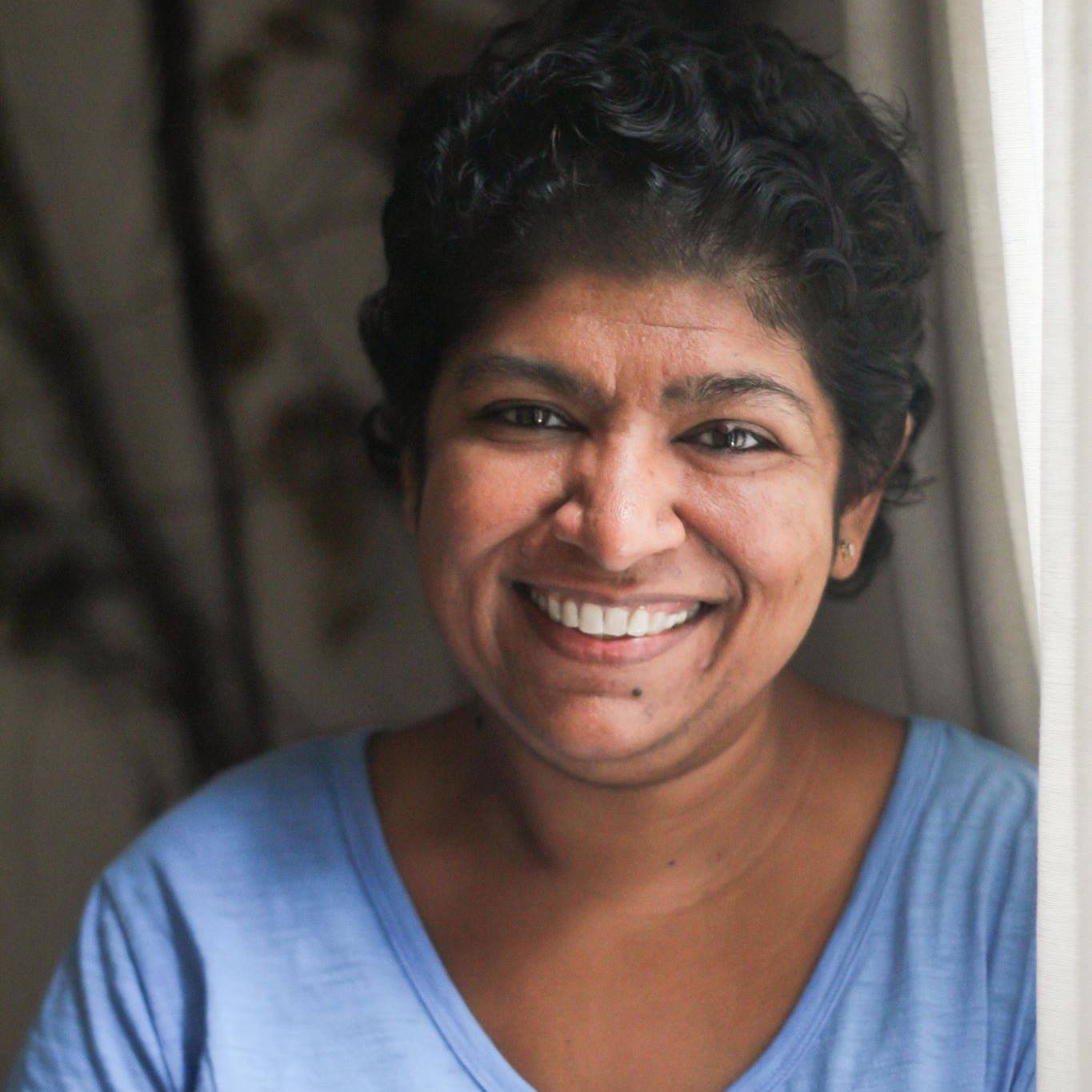 Rasee Govindani, CD(DONA), CPD(CBI)
Rasee Govindani, CD(DONA), CPD(CBI)
Bangkok, Thailand
- What are some challenges about being a doula in your location?
As a doula in Bangkok, I mainly support clients in two hospitals and work with a handful of doctors and nurses, so I have to walk a fine line between supporting my clients and building relationships with the medical staff. Every decision I make at the hospital is keeping in mind the fact that I will have to see these same people again and again, and I have to make a good impression every single time. There is also no real concept of “informed consent” in our culture, so I have to remind my clients of this before we go in and they have to work harder to ask questions every time a procedure is offered. I find myself being on high alert at times because I know that if we don’t notice and we don’t ask, there will not be an opportunity to consent. Another challenge is that it takes the hospitals a long time to catch up to evidence so we’re constantly having to convince doctors and hospitals to practice in the way that is best for our families, such as delayed cord clamping and immediate skin-to-skin and no routine episiotomy. It’s challenging, beautiful, rewarding work.
- What are some of the things that bring you joy about being a doula?
It is a privilege every single time I am in the room when a new person enters the world. I love the moment when a couple becomes a family. I love the look in a dad’s eyes when he meets his baby for the first time. I love hanging out with a family in labor, talking in between contractions about their lives and their love stories and their hopes and dreams for the future. I love women and their strength and how they embrace their powers.
- Is there an interesting or unique birth custom in your area that may not be found in other locations?
Many Thai mothers enter into a postpartum ritual called “yu fai,” where a woman will come to her home and give her a steam bath, a body and lactation massage, and herbal compresses. This process takes 4-5 hours a day and is done for 5-7 consecutive days. It’s a way to help the birthing woman heal and to encourage milk flow and a great way for her to take some time to herself. She will take breaks as needed to feed the baby, but usually will have help with the baby (family or hired help) while she is undergoing yu-fai.
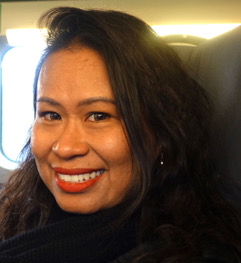 Warda Yusoff, CD(DONA), LCCE
Warda Yusoff, CD(DONA), LCCE
Singapore
- What are some challenges about being a doula in your location?
The maternity system in Singapore operates different from countries like the UK or The Netherlands. Every pregnant woman will meet an OBGYN the minute they know that they are pregnant, regardless of whether the pregnancy is low risk or high risk. We do not have a midwifery care model that gives continuity of care for the women. When the midwifery model is not an option for women, prenatal checks and births, very often, become very clinical and medicalized and done in clinics and hospitals. The government does not support birthing in a birthing house with a midwife and births happen in hospital. On a rare occasion, birth happens at home – an unplanned home birth or free (unassisted) births.
Doctors and nurses in the hospital seem to lack an understanding about the role of the doula and very few doctors, perhaps less than ten practitioners, would allow women to bring in a doula to support them for the birth. Some practitioners are bullies. Some have negative experiences with other doulas who do not carry proper certification and credentials and have negative feelings about doulas being present for their patients’ birth.
Very few doctors understand how doulas fill a need in an impersonal hospital setting and at the very least feel obliged to honor doula presence because doula support is what the patients want. At the same time, other doctors state doulas sometimes tried to insert themselves between the patient and the doctor in the name of protecting the patient. Most doctors in Singapore are risk averse and thus they manage the patient’s labour with routine inductions in the 38-40 weeks window. Only 1-2 doctors in Singapore would allow women to stay pregnant up to 42 weeks.
As a doula, we want every birth to go peacefully, happily and well. We may do everything in our power to help this happen for every woman we can. However, sometimes things go wrong, there are times when the unthinkable happen. Medically necessary inductions aren’t always successful and a longed-for wish to have an unmedicated birth becomes an unexpected cesarean birth.
As a doula, the most powerful skill is to simply be the one who witnesses that unwanted change in plans. We hold space for a lot of pain and loss. We come prepared to support women through the physical pain of birth, but the physical tools we carry in our birth bags can be useless for the breathtaking emotional pain, if that happens.
- What are some of the things that bring you joy about being a doula?
Being a doula is the MOST wonderful thing I have ever done in my life. I LOVE this work and it’s my soul calling. The biggest joy of being a doula is that we get to see the best in people. We see the best of people coming to planet Earth. Childbirth is one of the most transformational experiences that women go through. I get to witness this person become a mother, finding her voice, finding her power and that is the most beautiful thing to witness. The birth of the baby is a rebirth for the mother, of that partner as a co-parent and of that family unit. I get to watch the babies and families grow. It’s the most satisfying job ever.
- Is there an interesting or unique birth custom in your area that may not be found in other locations?
Singapore is a multi-racial country in Asia and different cultures practice different types of pre and post-confinement practices. For example, the Malays believe that babies are “ blessings from God” and appear to have strong family values. As soon as the little prince or princess arrives in the world, he or she will get the royal treatment with relaxing massage which is commonly practiced in Asia.
Traditional Malay infant Massage, called “Urut Bayi,” is done when baby is two days old. They are given a gentle head to toe massage with virgin coconut oil every day after a nice warm bath. It is also a great opportunity for parents to bond with their baby as studies have shown that it positively affects the infant hormones that control stress, reduce crying, and promote relaxation and sleep.
After massage, a baby tummy wrap called “barut” (made of cloth and has string ties or a velcro strip) is then wrapped around the baby’s abdomen to keep him/her warm. Although there is not evidence, it is believed that such a practice helps to prevent colic and support baby abdominal muscles.
Another custom which is considered as a rite of passage for Malay babies is called the “Cukur Rambut”- shaving hair ceremony. Malay families will take this opportunity to officially introduce the little one to extended family similar to how Chinese families have a Baby Full Month Party. The ceremony can be a private or intimate gathering or a grand and lavish one. Generally done at the end of the postnatal confinement period at 44 days.
The family will invite guests to attend the joyous celebrations where a reading from the Quran is usually done to bless the new life and a group of people will sing praises and good tidings welcome the baby. The baby is then carried by the mother or father to each elder or religious leader present to snip off a lock of hair, which is then placed in a bowl of water or young coconut shaped like bowl. At the end of the ceremony, the hair is buried in the ground. Some families weigh the locks of hair and donate its weight in gold or the cash equivalent to charity.
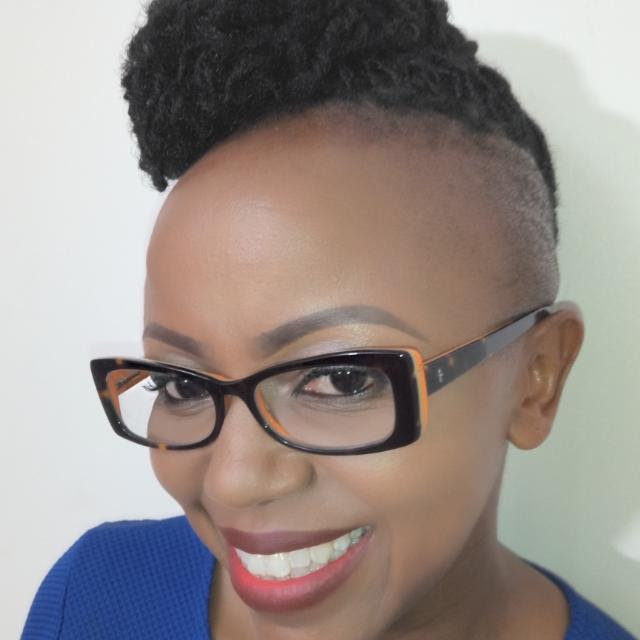 Esther Kimani CD(DONA), LCCE
Esther Kimani CD(DONA), LCCE
Nairobi, Kenya
- What are some challenges about being a doula in your location?
In Kenya, the idea of a doula is relatively new and most new parents don’t see why they should pay for this kind of support. It is therefore quite hard to be able to earn a living from just offering doula support services here.
- What are some of the things that bring you joy about being a doula?
When I see a pregnant woman literary transform from being so unsure about everything to becoming a confident and empowered mother to her newborn child. That first cry after the cord is cut, it gets me teary every time and I am honoured to be part of this amazing process.
- Is there an interesting or unique birth custom in your area that may not be found in other locations?
One custom is that the mother-in-law waits outside the door for the placenta. She then goes home with it and buries it under a tree in her compound. The placenta is seen as the source of life for the baby, burying it protects the baby from the evil spirits that may seek to harm him/her.
In another local community, immediately after birth, the mother takes the baby, faces the direction of the sacred Mount Kenya and offers the child to God by spitting on his forehead which is a sign of blessings.
Brisbane, Australia
- What are some challenges about being a doula in your location?
I recently moved to Brisbane from the USA (Seattle, WA) where I had a wonderful community of doulas to lean on and build connections with. While I haven’t yet started taking on clients in Brisbane, I’m finding it a bit daunting to know where/how to start to break into the birth community here in Australia. There are certain key difference in how the healthcare system functions and how doulas are integrated into the system which I’m still taking to time to learn. Finding patience in the process in a new country has been very important for this part of my journey!
- What are some of the things that bring you joy about being a doula?
I have only been a doula for about a year, but I have never found a career path that has brought me more fulfillment and joy than this. Being a doula, I have the great pleasure of supporting clients and their families through one of the MOST transformative experiences of their life. Not only that, but my sole focus is to support, advocate and enrich this experience so that it’s something the client can always look back on with pride no matter what specific events occur because they know with confidence that their authentic strength shined through.
- Is there an interesting or unique birth custom in your area that may not be found in other locations?
Almost every birthing woman is offered a midwife first instead of an OB (this is much different than the states) and it seems like the midwives are very keyed into the practices and support that a doula would provide so I’ve found more women say “I didn’t need a doula because I had a midwife.”
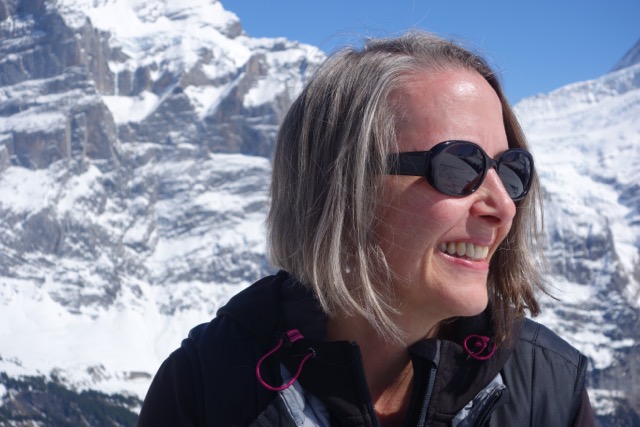 Mary Kalau, BA, LMT, CD(DONA)
Mary Kalau, BA, LMT, CD(DONA)
Stockholm, Switzerland
- What are some challenges about being a doula in your location?
The biggest challenge doulas face in Switzerland is getting the word out that we exist and that we can make a difference.
- What are some of the things that bring you joy about being a doula?
Each time I am privileged to witness a new life make the journey earth-side, I am humbled and inspired to continue to spread the message that how we are born really truly matters.
- Is there an interesting or unique birth custom in your area that may not be found in other locations?
Insurance pays for midwives to visit a postpartum family up to 16 times to make sure that mama, baby and the whole family get a good, healthy start.
Conclusion
A deep thank you and a whole bunch of gratitude for all the people all around the world who are supporting families during the prenatal period, labor, birth and as a new family. The work you do really makes a difference for so many.
Are you a doula? Where do you practice? How might you answer the questions answered here for yourself? Let us know in the comments section of this blog post. Happy World Doula Week to all!


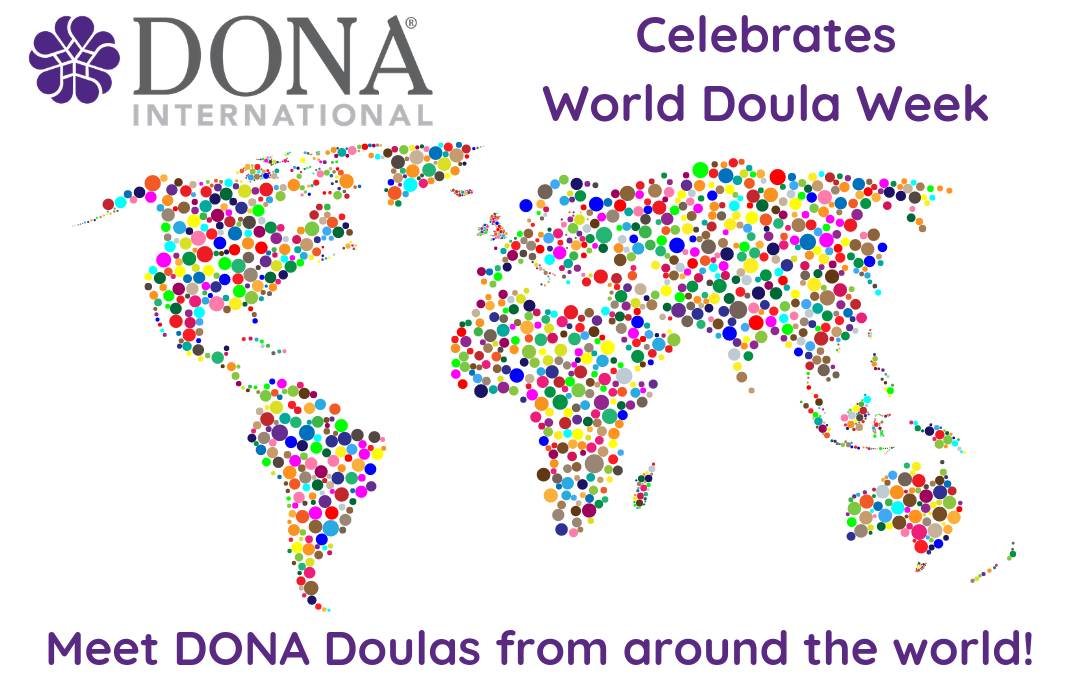
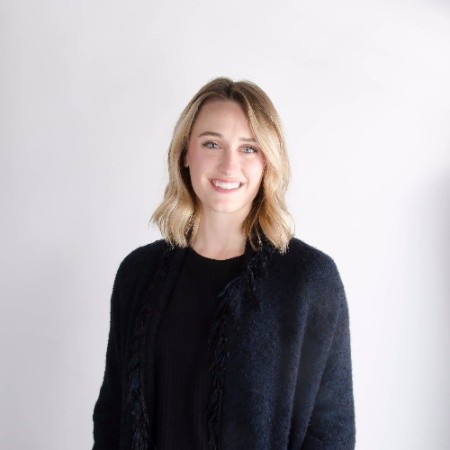
I am a . new CD in Quebec Canada looking forward to a prosperous career as a birthing doula. Happy Doula week to ALL the DOULAS EVERYWHERE in the WORLD.